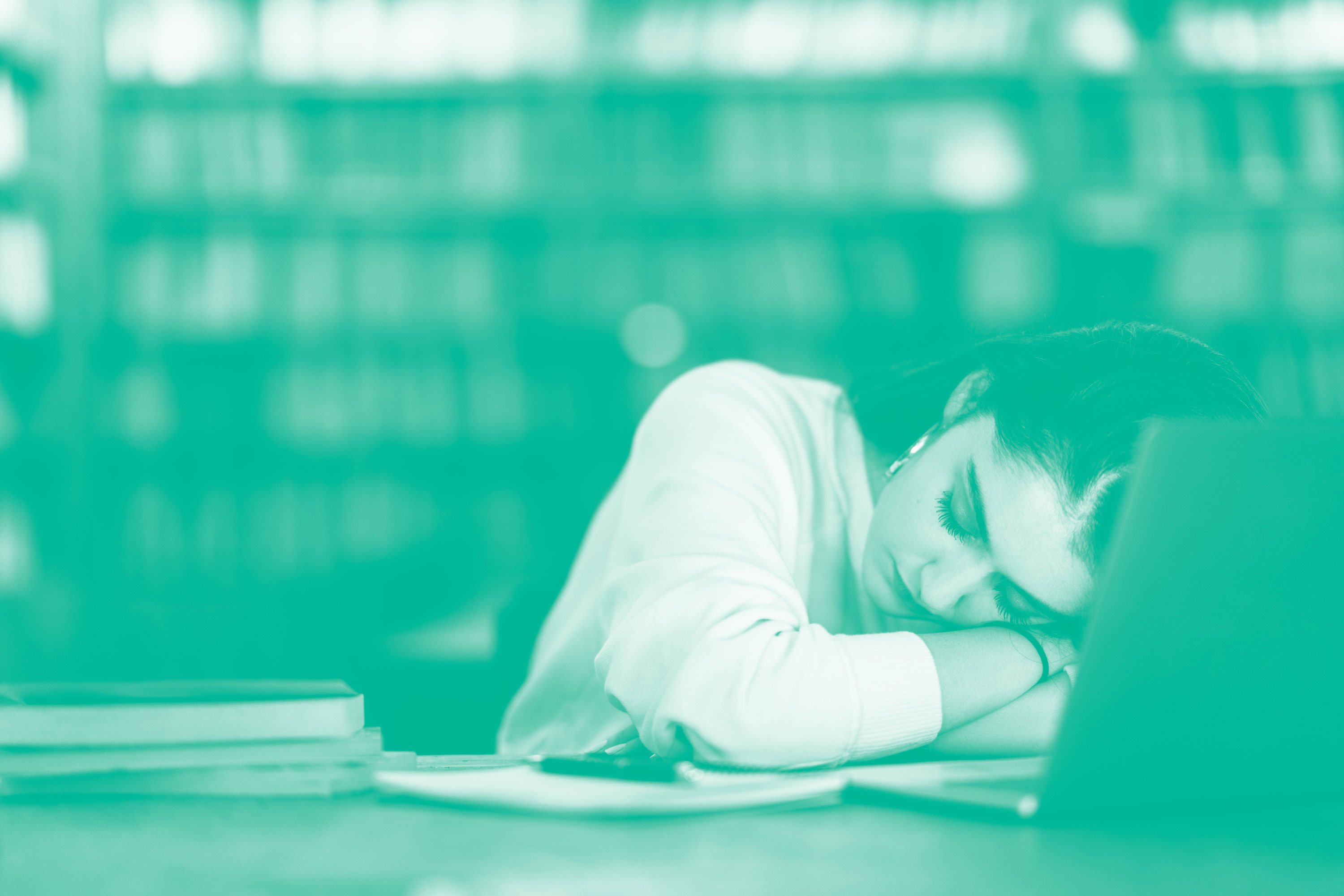
Materials science and engineering professor Jeffrey Grossman had long suspected that students who exercise perform better academically. To test his theory, he gave Fitbits to 100 students in his 3.091 (Intro to Solid-State Chemistry) class, and enrolled about a quarter of them in an intense fitness class. The students agreed to wear the fitness trackers 24/7 and give Grossman access to a semester’s worth of their activity data.
Surprisingly, the data revealed no measurable differences in test performance between the two groups. (Grossman speculates that the intervals between the fitness and chemistry classes were too variable to show an effect.) But while Grossman was tracking the students’ activity, he also inadvertently collected data on their sleep—which Fitbits track by recording lack of activity—and found striking correlations.
Analysis of the data revealed a nearly straight-line relationship between students’ average amount of sleep and their grades (ranging from As to Cs) on 11 quizzes, three midterms, and the final exam. While other factors could be at play—and there were plenty of exceptions—the average overall course grades of students who typically got 6.5 hours of sleep were 50% lower than those of students who usually logged just one more hour of sleep.
The extent of the correlation was surprising—and is a strong indication that sleep “really, really matters,” says Grossman.
“Of course, we knew already that more sleep would be beneficial to classroom performance,” he says. But unlike most previous sleep studies that relied on self-reported surveys, “in this study the benefits of sleep are correlated to performance in the context of a real-life college course, and driven by large amounts of objective data collection.”
Contrary to popular wisdom, the study showed no improvement in scores for those who got a good night’s sleep right before a big test. According to the data, “the night before doesn’t matter,” Grossman says. “It’s the sleep you get during the days when learning is happening that matter most.”
Students who got relatively consistent amounts of sleep each night did better than those with greater variations from night to night, even if they ended up with the same average amount. Staying up too late also takes a toll. The data showed that if you need seven hours of sleep, it’s critical to start that seven hours before a specific cutoff—typically 2 a.m. for MIT students—or your performance starts to decline. “When you go to bed matters,” Grossman says. “Quantity isn’t everything.”
Keep Reading
Most Popular
Large language models can do jaw-dropping things. But nobody knows exactly why.
And that's a problem. Figuring it out is one of the biggest scientific puzzles of our time and a crucial step towards controlling more powerful future models.
How scientists traced a mysterious covid case back to six toilets
When wastewater surveillance turns into a hunt for a single infected individual, the ethics get tricky.
The problem with plug-in hybrids? Their drivers.
Plug-in hybrids are often sold as a transition to EVs, but new data from Europe shows we’re still underestimating the emissions they produce.
Stay connected
Get the latest updates from
MIT Technology Review
Discover special offers, top stories, upcoming events, and more.